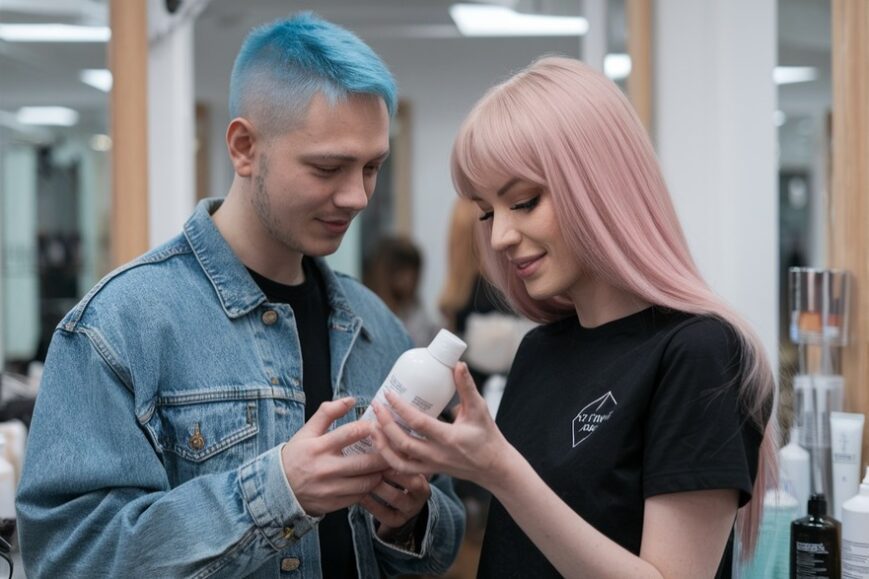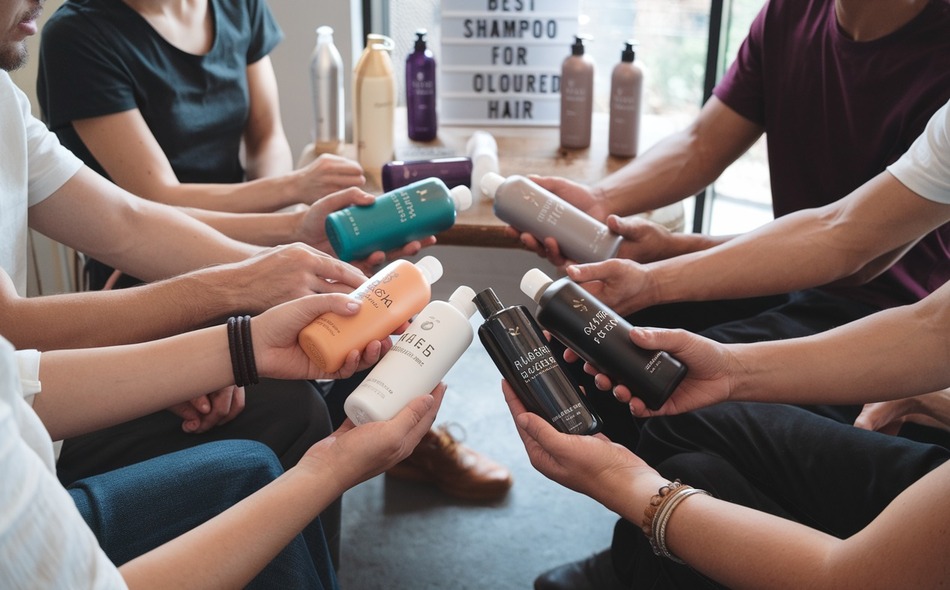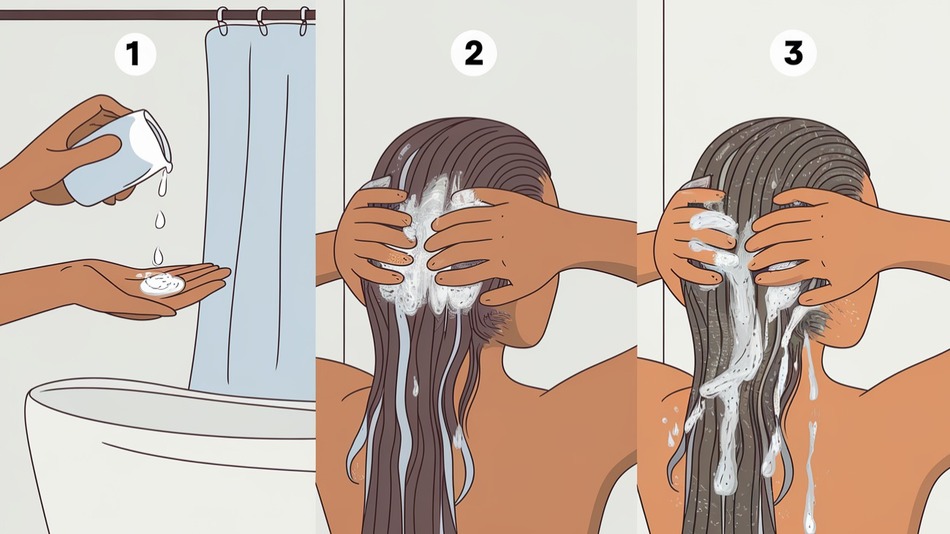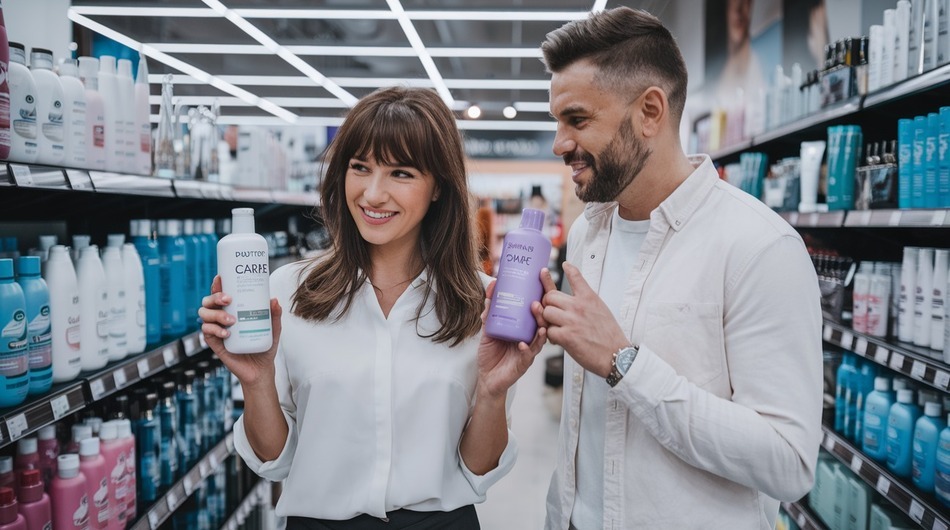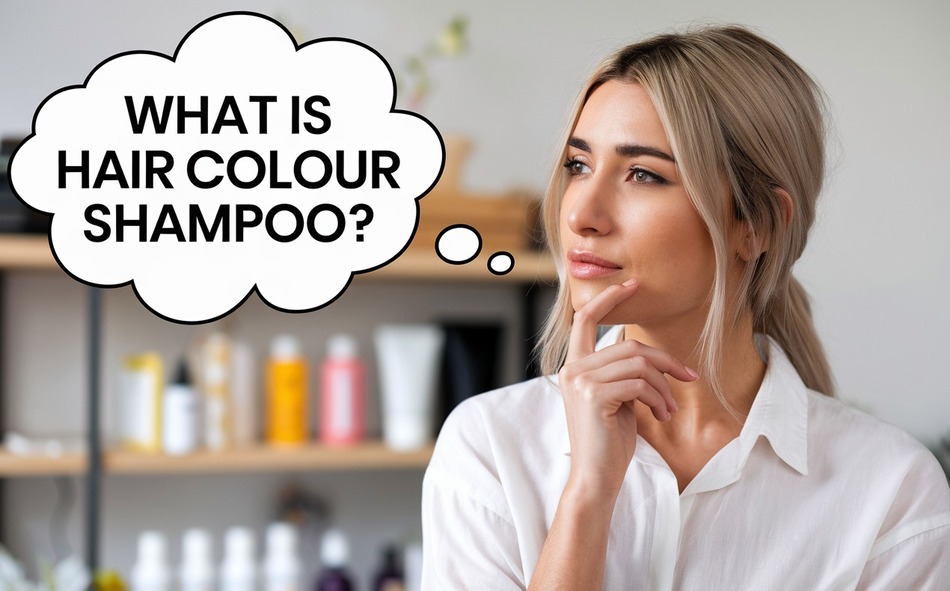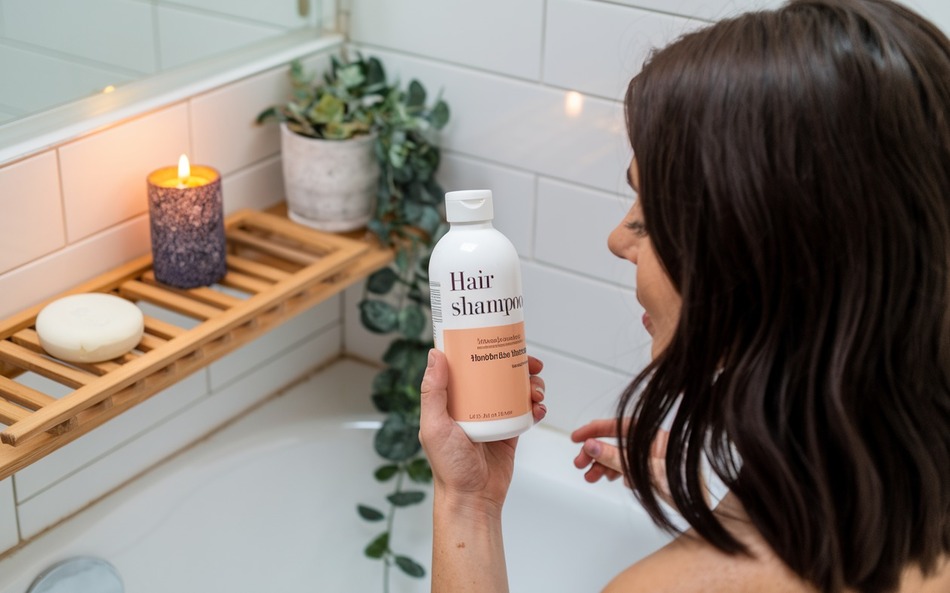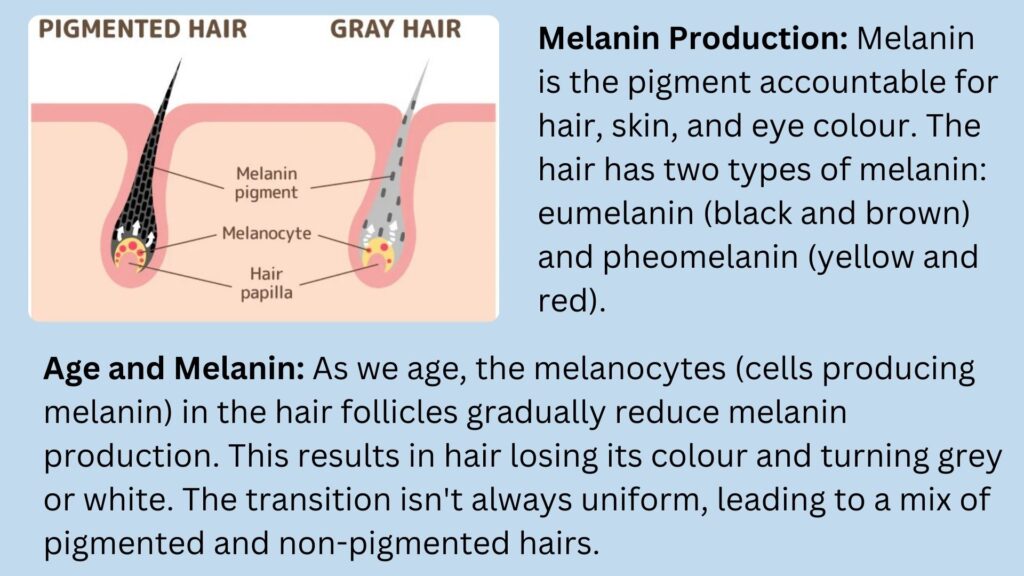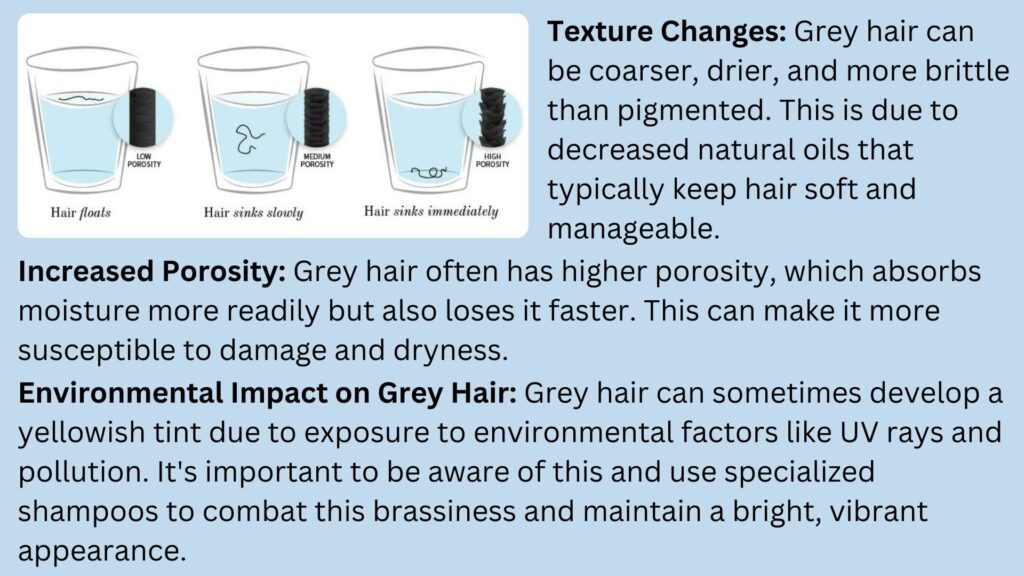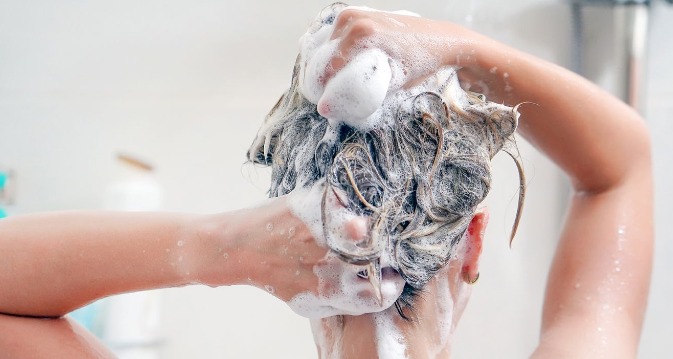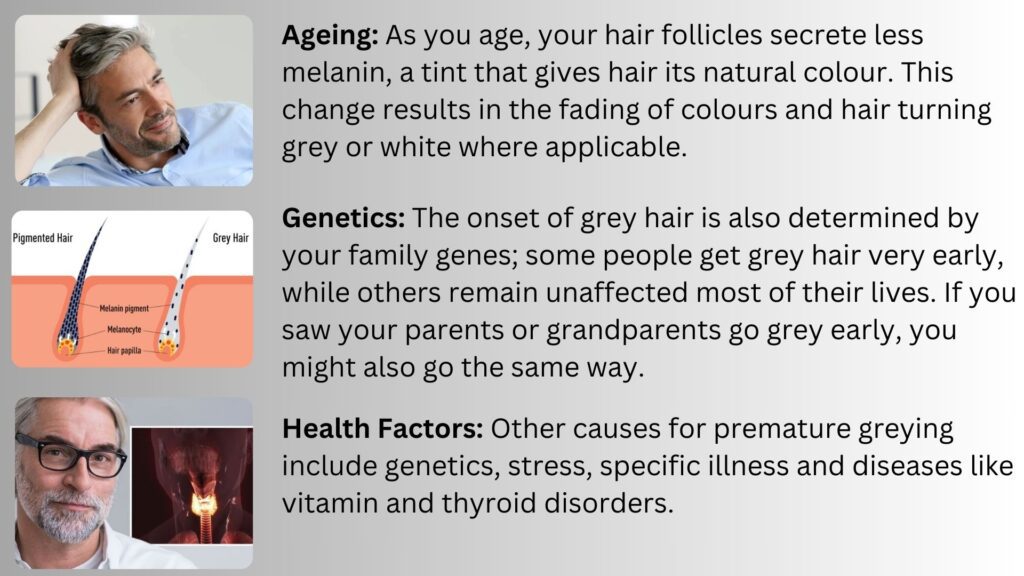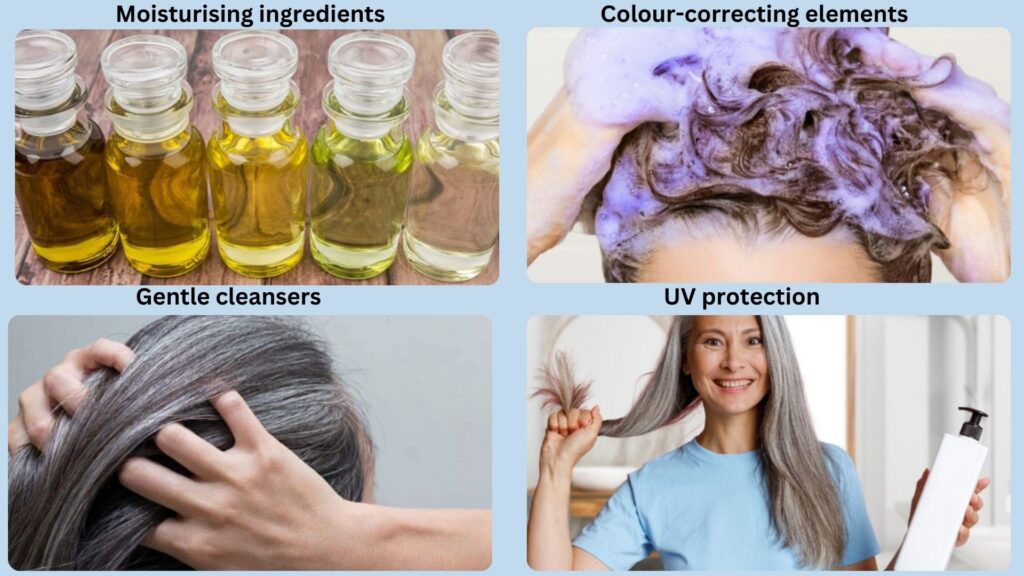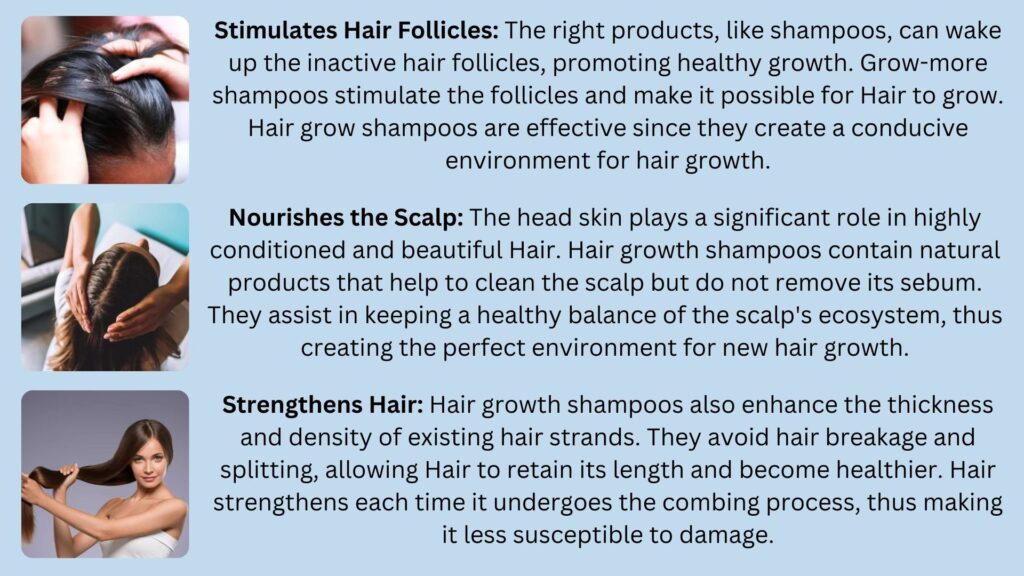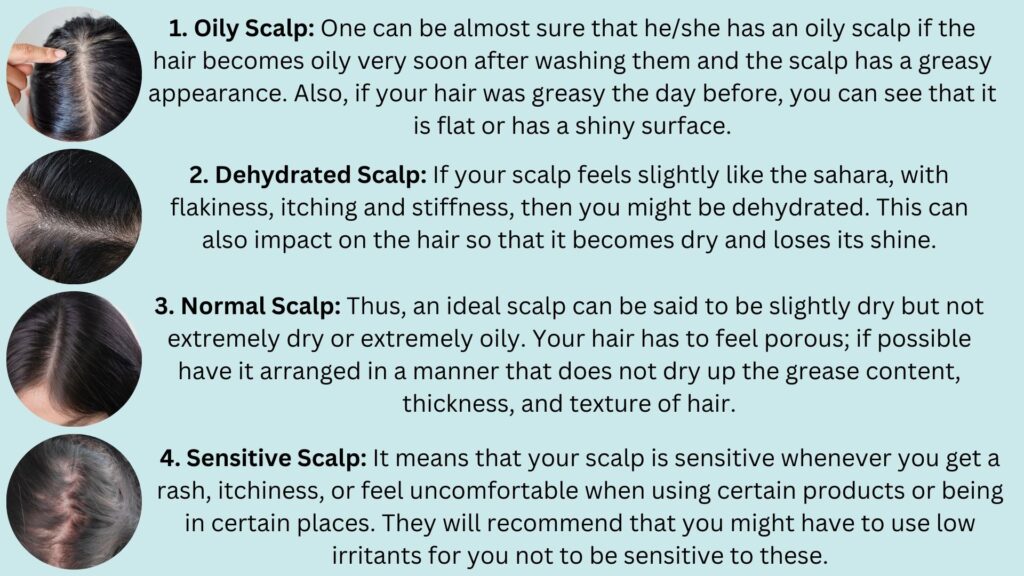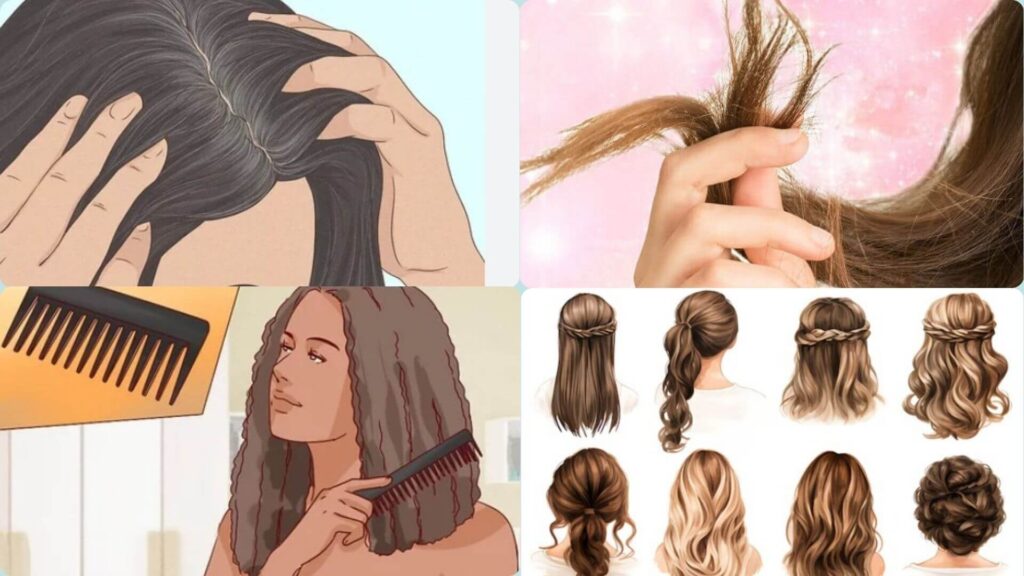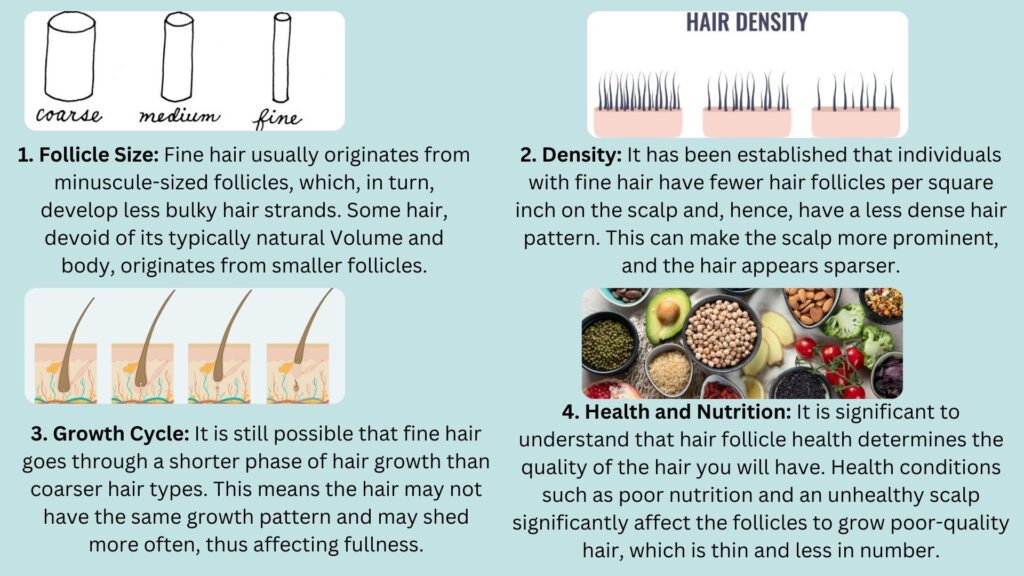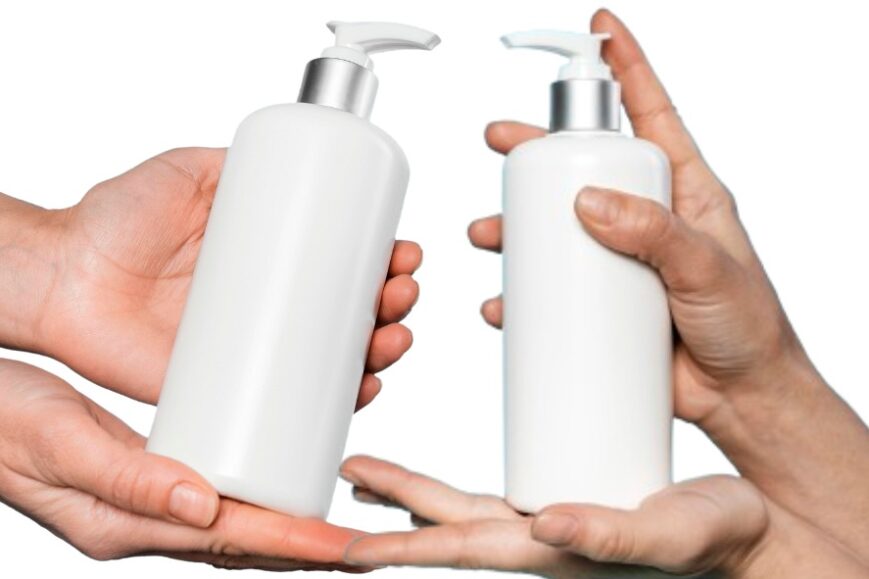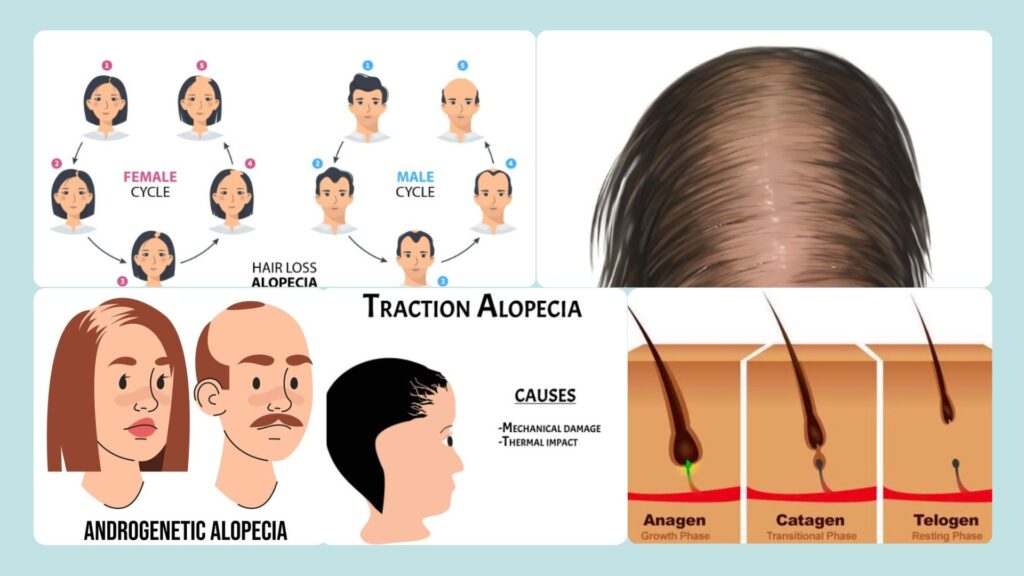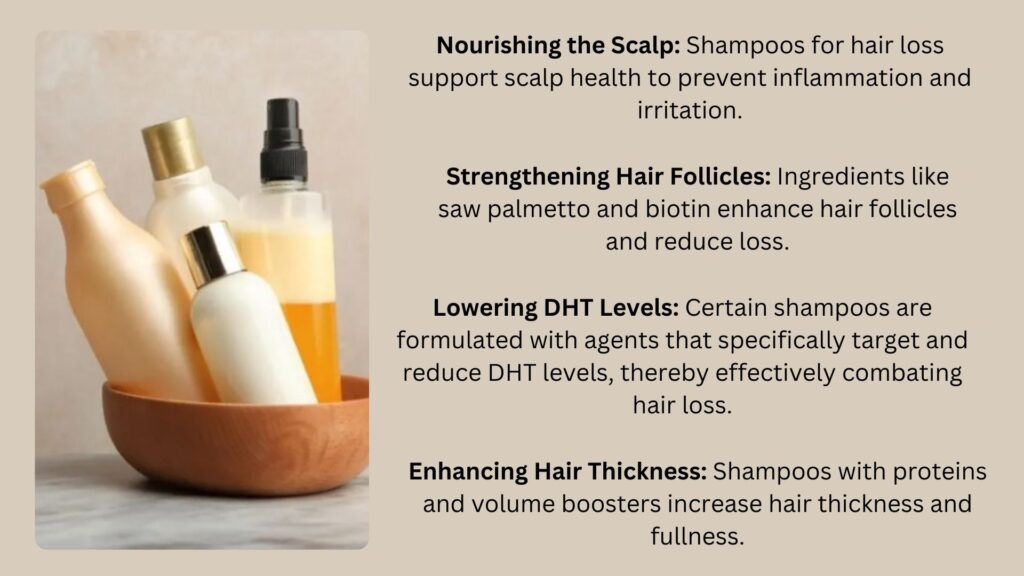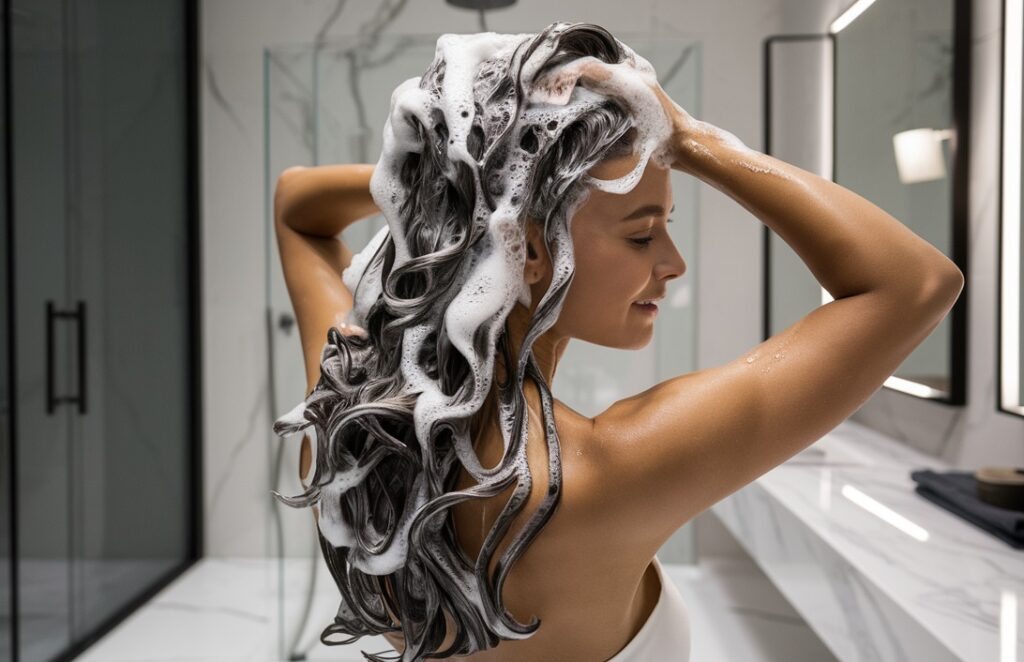Many people struggle with thinning hair and a peeling scalp, battling dandruff and hair loss simultaneously. Dandruff can worsen hair loss by irritating and inflaming the scalp, which weakens hair follicles.
Can dandruff shampoos help with hair loss? Indirectly, yes. While they reduce hair flaking and soothe the scalp, a dandruff shampoo alone won’t entirely solve hair loss. Look for components like zinc pyrithione or ketoconazole to treat both concerns. Combine dandruff treatment with a targeted hair growth solution to strengthen follicles and promote regrowth.
Learn About Dandruff as Well as Its Effect on Hair Loss

As much as those small white flakes that flock on your shoulders may seem like a minor issue, dandruff is a condition that affects hair a lot—it sheds dead skin cells, which causes itching scalp and inflammation.
Dandruff causes itchiness and inflammation whenever it sheds dead skin cells. But here’s the kicker: It is agreed that dandruff can aggravate the scalp, which may cause hair damage. Over time, it can cause inflammation, which may lead to hair loss. So, getting an excellent solution to treat dandruff well can be a turning point for your hair.
Can Dandruff Cause Hair Loss?
A study showed that scalers experiencing dandruff lose up to two more hair daily than individuals without dandruff. This is not just some beauty issue people tend to care about; it becomes crucial when losing hair.

How Dandruff Affects Hair Health
Dandruff is a typical scalp condition characterized by white or yellow flakes, often accompanied by itching and irritation. While dandruff does not directly cause hair loss, it can create an unhealthy scalp environment that negatively impacts hair health.
Addressing dandruff early is crucial for maintaining scalp health and hair strength. Effective treatment options, such as medicated shampoos targeting dandruff’s underlying causes, can manage the condition effectively. By managing dandruff effectively, individuals can protect their scalp environment and promote healthier hair growth, providing reassurance and peace of mind.
What’s the Deal With Hair Loss and Dandruff?

First off, dandruff and hair loss are connected, but not in the way most people think.
Dandruff alone doesn’t directly cause your Here’ sto to fall out. However, the constant itching it causes? That’s the real issue.
When you repeatedly scratch your scalp, you damage the hair follicles. This weakens your hair, leading to breakage and shedding. So, if you’re noticing extra hair in the shower drain, dandruff might be silently contributing to the problem.
This is where a dandruff shampoo to help with hair loss becomes your secret weapon. When used correctly, it can fight dandruff while also protecting your hair.
How Does Dandruff Shampoo hair’s Help with What’s?
Most people think any old dandruff shampoo will do the trick, but that’s not enough. To tackle both issues, you need shampoo to help with hair loss—something that fights flakes and protects your
So, what should you look for?
Pick shampoos that have these key ingredients:
- Ketoconazole is a powerful fighter against dandruff and a promoter of hair growth. It helps reduce inflammation, which might be stopping hair from growing as it should.
- Zinc Pyrithione—This tackles the fungi that cause dandruff while calming your scalp, making it a healthier environment for hair growth.
- Salicylic Acid is excellent for clearing dead skin and product buildup. It allows hair follicles to breathe and grow stronger.
These ingredients ensure your scthat clean and healthy, giving your hair the best option to thrive.
Choosing the Best Dandruff Shampoo to Help with Hair Loss

When choosing an anti-dandruff shampoo to help with hair loss, looking for a product that effectively addresses both issues while being gentle enough for regular use is essential.
Here are some key factors to consider:
By considering these factors and trying out different shampoos, you can find the best solution to keep your scalp healthy and promote strong, healthy hair growth. Remember to be patient, as it may take time to see results.
How to Use Dandruff Shampoo for Hair Loss
Using your dandruff shampoo correctly can make all the difference in managing gruff and promoting a healthy scalp. Here’s how to ensure you’re getting the most out of your treatment:
Make sure to cover your entire scalp with the dandruff shampoo.
- Dime-Sized Amount: A little goes a long way, but make sure to put enough to cover all hair follicle points in your head.
- Target Problem Areas: Be more conscious of areas that are usually darker or produce some form of itching. Each one of you, please take 2-3 minutes to rub the shampoo into your hair and scalp.
- Promote Absorption: Massage gently on the scalp using your fingertips in a circular motion to make a lather with the shampoo. This aids in the distribution of the product and boosts circulation, which in turn benefits the hair.
- Duration: Ideally, an assessment of at least 2-3 minutes of massaging is recommended to ensure that the meaning gets to the deeper layers of the skin.
Ensure all product is washed out thoroughly to prevent buildup.
- Warm Water: Rinse with warm water, which helps remove any residue without further irritating the scalp.
- Check for Residue: Ensure that no drips or remains of the shampoo or flaky products are on your head since drying causes them to fish on the scalp irritations.
Use your dandruff shampoo 2-3 times a week for best results.
- Consistency is Key: Regular use is essential for effectively managing dandruff. However, if you have an oily scalp, you may need to wash more frequently with a gentle shampoo on non-dandruff days.
- Adjust as Needed: Pay attention to how your scalp responds and adjust the frequency if necessary. For some, using a medicated shampoo too often can lead to dryness, so find a balance that works for you.
Thus, by taking the above steps, you will likely get the most out of your dandruff shampoo and foster a conducive environment for hair growth. Regularity and the right approach must be maintained in dealing with dandruff and controlling hair loss.
Lifestyle Changes to Support Scalp Health

While using effective dandruff shampoo is crucial for managing dandruff and preventing hair loss, incorporating lifestyle changes can further support a healthy scalp. Here are a few adjustments to consider:
Maintain a Healthy Diet
Eating a diet rich in nutrients supporting scalp and hair health is essential. Focus on foods that provide:
- Omega-3 fatty acids: In foods like salmon, walnuts, and flaxseeds, omega-3s nourish the scalp and promote hair growth.
- Zinc: Beans is good sources of zinc, which helps maintain a healthy scalp.
- Vitamins B12 and E: Vitamin B12 is essential for hair growth, while vitamin E has antioxidant properties that can protect the scalp. Good sources include eggs, dairy products, leafy greens, and nuts.
Stay Hydrated
Drinking enough water is crucial for keeping your scalp and hair moisturized. Dehydration often shows up as a dry, itchy scalp and brittle hair prone to breakage.
Aim for at least 8 to 9 glasses of water a day, and even more if you live in a hot climate or engage in physical activity that leads to excessive sweating. Keeping your body hydrated helps maintain scalp health, promotes healthy hair growth, and lowers the risk of dryness and damage.
Manage Stress
Stress can exacerbate dandruff and contribute to hair loss by weakening the immune system and disrupting the growth cycle.
Incorporate tension-managing techniques into your daily routine, such as:
- Meditation
- Yoga
- Deep breathing exercises
- Regular physical activity
Sleeping is also essential, as poor sleep can increase stress levels and negatively impact hair health.
Combined with an effective dandruff shampoo, the scalp and its conditions can be balanced to facilitate healthy hair growth.
Mistakes to Avoid with Dandruff Shampoo for Hair Loss

Using a dandruff shampoo to help with hair loss can be a game-changer, but it’s not as simple as lathering up and rinsing off. Here are some common mistakes you should avoid to ensure you get the best results:
Using Too Much Product
One of the biggest things people must correct is using too much dandruff shampoo.
- Less is More: You only need a small amount to cover your scalp effectively.
- Please focus on the Scalp: Concentrate on massaging the shampoo into your scalp rather than applying it liberally throughout your hair.
- Cost-Effective: Using fewer products saves you money and prevents unnecessary buildup on your hair.
Skipping Conditioner
Many people think they don’t need a conditioner if they’re using a dandruff shampoo.
- Dandruff Shampoos Can It’s Drying: These can strip natural oils from your scalp and hair, leading to dryness.
- Use a Lightweight Conditioner: To balance things out, opt for a lightweight conditioner that will keep your hair moisturized without weighing it down.
- Application Tips: Apply Conditioner primarily to the lengths and ends of your hair, sidestepping the scalp area to prevent any potential buildup.
Not Giving It Time
Patience is vital when using dandruff shampoo for hair loss.
- Results Won’t Show Up Instantly: These things take time to happen, and people should consider this.
- Stick with the Routine: Do not conclude that the shampoo is effective if you have only used it briefly.
- Monitor Progress: Notice any change in the status of your scalp or the state of your hair in the long run since changes may be slow.
Can Dandruff Shampoo Alone Stop Hair Loss?
- Dandruff shampoo helps, but it’s not a cure-all. It improves scalp health and reduces dandruff-related hair loss but won’t fix every cause of hair loss.
- Underlying issues like stress, genetics, or poor diet need more than shampoo for effective treatment.
- Dandruff causes scalp inflammation, which weakens hair follicles and can lead to more hair loss.
- People with dandruff may lose 2-3 times more hair daily than those without it.
- Starting with the right dandruff shampoo gives your scalp a solid foundation for minimizing hair loss.
- To fully combat hair loss, pair your dandruff shampoo with:
- A balanced diet is rich in vitamins and minerals.
- Adequate sleep.
- Effective stress management.
- Dandruff shampoo was created to eliminate dandruff and not to be the sole key to hair loss. It’s part of a more extensive strategy.
Conclusion
Managing dandruff and its impact on hair loss requires a comprehensive approach. Effectively using dandruff shampoo is just the beginning. Applying the shampoo correctly, incorporating a balanced diet, staying hydrated, and managing stress can create optimal conditions for scalp health and hair growth.
Remember that your dandruff shampoo can significantly help reduce flakes and soothe irritation; it’s not a standalone solution for hair loss. Consistency in your routine and patience in observing results are critical. With the right combination of products and lifestyle changes, you can take significant steps toward healthier hair and a happier scalp.
Don’t hesitate to consult with a healthcare professional if you have persistent issues—taking assertive steps is the best way to ensure your hair remains.
FAQs
Can dandruff shampoo help with hair loss?
Yes, dandruff shampoo can help with hair loss, significantly if the hair loss is associated with dandruff. Dandruff can lead to an irritated scalp, weakening hair follicles and contributing to hair loss. Regular dandruff shampoo can help control dandruff and promote a healthier scalp environment, allowing for better hair growth.
How often should use dandruff shampoo?
For best results, it is generally recommended to use dandruff shampoo 2-3 times in week. However, some individuals may benefit from more frequent use, especially if they have a particularly oily scalp or severe dandruff. Always follow the instructions on the product label and adjust based on your scalp’s response.
Can I Use Dandruff Shampoo and Routine Shampoo Together?
Indeed, you can use both conventional and anti-dandruff shampoos. When you don’t use your dandruff shampoo, use a gentle shampoo that promotes the general health of your scalp instead of a strong one. Make sure the harsh components in your typical shampoo—like alcohol or sulfates—don’t aggravate your scalp inflammation. Alternate between dandruff and regular shampoos to maintain a balanced scalp care routine without over-drying or harming your skin.
How long does it take to see results from using dandruff shampoo?
Results may vary, but you should typically start noticing improvements in your scalp condition within a few weeks of consistent use. It’s essential to continue using the shampoo for at least a month before making any judgments about its effectiveness.
What should I do if my dandruff persists despite using medicated shampoo?
If your dandruff persists despite consistently using medicated shampoos, it may be time to consult a dermatologist. They can assess your condition, recommend more vital treatments, or identify any underlying issues contributing to your symptoms.
Are there any side effects associated with using dandruff shampoos?
While most people tolerate dandruff shampoos well, some may experience mild irritation or dryness. If you notice persistent irritation or adverse reactions, discontinue use and contact a healthcare professional for alternatives.
Can I prevent dandruff from returning after treatment?
Dandruff is often a recurring condition, so it’s essential to maintain good scalp hygiene by regularly using an appropriate anti-dandruff shampoo, even after symptoms improve. Additionally, managing stress and maintaining a healthy diet can help reduce the likelihood of recurrence.

